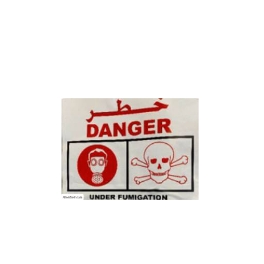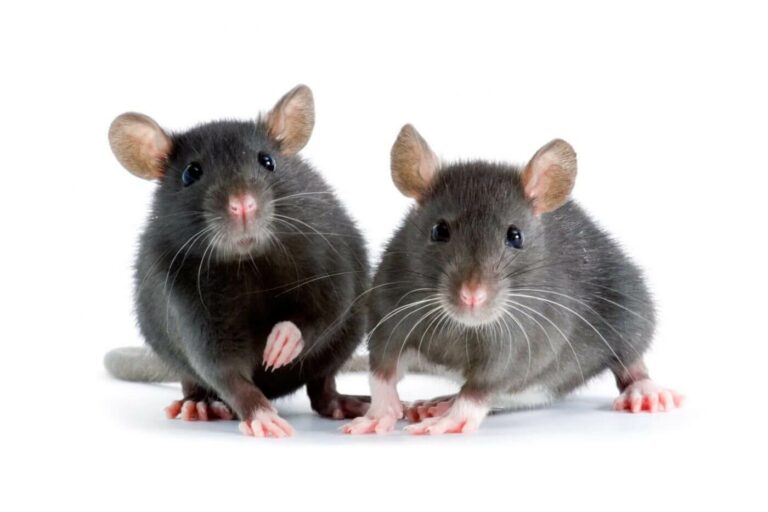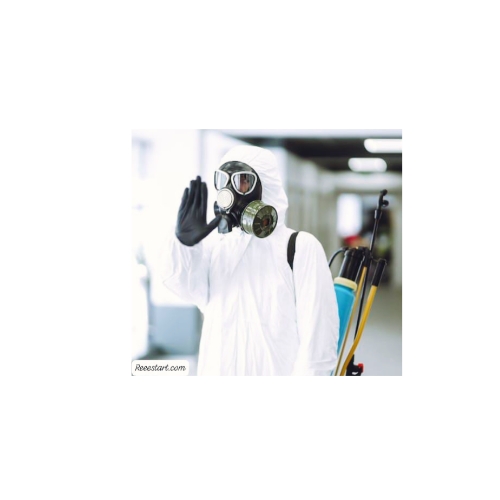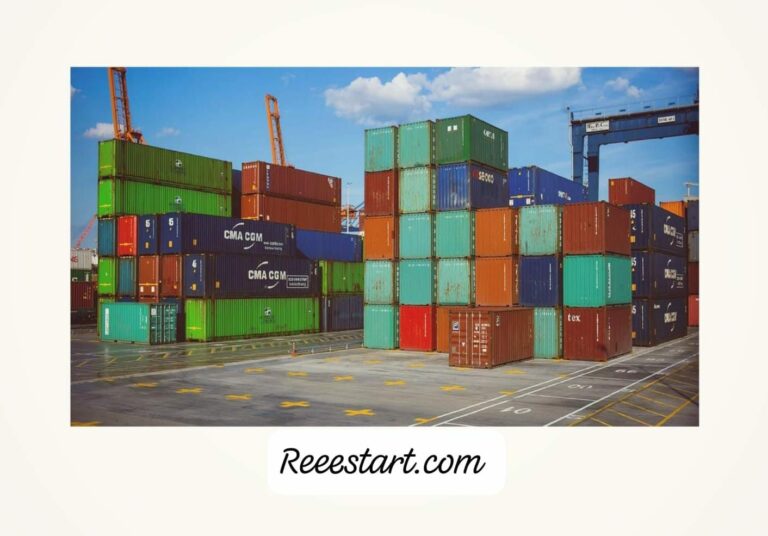Economic Opportunities and Market Demand for Agricultural Engineers in Aluminum Phosphide Fumigation in the Arab Gulf Region. The agricultural sector in the Arab Gulf countries is rapidly evolving due to the growing need for food security, efficient pest management, and improved post-harvest handling practices. With limited agricultural land and a high dependence on food imports, the region has become one of the largest markets for agricultural products. This has created a significant demand for effective pest control measures, particularly in the storage of grains, seeds, and other imported commodities, which are vulnerable to pests during transit and storage.
Aluminum phosphide fumigation
Aluminum phosphide fumigation is one of the most widely used and effective pest control methods for stored agricultural products. By releasing phosphine gas (PH₃), it effectively eliminates a broad range of pests, ensuring that agricultural commodities remain safe for consumption and export. This method is crucial in maintaining the quality and safety of food products, especially as the Gulf region plays a vital role in both food importation and exportation.
From an economic perspective, aluminum phosphide fumigation offers tremendous potential in the Arab Gulf region. The need to ensure the safety of food imports and exports creates a high demand for professional fumigation services. This presents a lucrative career opportunity for agricultural engineers specializing in fumigation techniques. By mastering the safe and effective use of aluminum phosphide, engineers can offer valuable services to storage facilities, exporters, and importers, ensuring that their commodities meet both local and international safety standards.
As the region continues to emphasize food safety, agricultural engineers who specialize in gas fumigation can benefit from a growing job market and competitive salaries. With proper training and expertise in this field, engineers can position themselves as essential players in safeguarding the agricultural supply chain, securing stable and well-paying jobs, and contributing to the region’s economic growth.
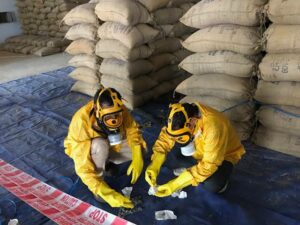
Career Opportunities for Fumigation Professionals in the Gulf Arab Region
Fumigation professionals in the Gulf Arab region have various career opportunities, Some of the key career paths include:
Pest Control Companies
- Jobs: Fumigation Technician, Pest Control Supervisor, Operations Manager
- Industries: Residential, commercial, industrial, and agricultural pest control services
- Employers: Rentokil, National Pest Control, Masa Establishment, and other regional companies
Ports & Shipping Industry
- Jobs: Marine Fumigation Specialist, Cargo Inspector, Quarantine Officer
- Role: Treating shipping containers, wooden packaging, and bulk cargo to prevent pest infestations
- Employers: Dubai Ports World, Saudi Ports Authority, Oman’s Sohar Port
Agriculture & Food Industry
- Jobs: Grain Fumigation Expert, Food Safety Inspector, Warehouse Fumigator.
- Role: Preventing pest contamination in stored food products, grains, and warehouses
- Employers: Food importers, storage facilities, and government food safety authorities
Oil & Gas Industry
- Jobs: Industrial Fumigation Technician, Health & Safety Specialist.
- Role: Managing pest control in remote camps, pipelines, and oilfield facilities
- Employers: Saudi Aramco, ADNOC, Qatargas
Government & Regulatory Agencies
- Jobs: Environmental Health Inspector, Quarantine Officer, Biosecurity Specialist
- Role: Ensuring compliance with fumigation regulations and international pest control standards
- Employers: Ministries of Environment, Health, and Agriculture in GCC countries
Aviation & Hospitality Industry
- Jobs: Aircraft Fumigation Technician, Hotel Pest Control Supervisor
- Role: Fumigating aircraft cabins, hotels, and tourism facilities
- Employers: Emirates Airlines, Qatar Airways, major hotel chains
Entrepreneurship & Consultancy
- Jobs: Fumigation Business Owner, Pest Control Consultant, Trainer
- Role: Providing specialized fumigation services or training technicians
- Opportunities: Starting a pest control company or offering expert advisory services
Requirements & Certifications
- Certifications: NPMA (National Pest Management Association), HACCP, WHO pesticide handling certification
- Work Permits: Some Gulf countries require licensing from local health or environment ministries
- Experience: Preference for candidates with experience in industrial or large-scale fumigation
Comprehensive Guide for Agricultural Engineers on Aluminum Phosphide Fumigation in the Arab Gulf Region
Aluminum phosphide (AlP) fumigation is an effective and widely used method for pest control in stored grains, seeds, and other agricultural commodities. However, its use requires careful attention to safety and regulatory standards due to the toxic and flammable nature of the phosphine gas (PH₃) produced. For agricultural engineers in the Arab Gulf region, understanding the basics of gas fumigation, including safety protocols, application methods, and environmental factors, is essential for ensuring successful pest control and minimizing health and environmental risks.
Chemical Properties and Hazards
Aluminum phosphide is a solid that reacts with moisture (from air or the commodity itself) to release phosphine gas. Phosphine is highly toxic and flammable, presenting serious risks to human health and safety if not handled properly. Inhalation of phosphine gas can lead to severe health consequences, including respiratory failure and even death. Moreover, phosphine concentrations exceeding 1.8% by volume can cause explosions.
Key Hazards:
- Acute toxicity from inhalation of phosphine gas.
- Risk of fire and explosion when phosphine concentrations exceed safe limits.
- Corrosive effects on certain metals, such as copper.
Application Methods and Formulations
Aluminum phosphide is available in tablet, pellet, or powder form. It is placed in sealed environments such as silos, storage containers, or warehouses to release phosphine gas. The gas effectively permeates the treated space, eliminating pests in stored goods. Ensuring uniform placement and proper distribution of the fumigant is crucial for successful pest eradication.
Application Methods
- Tablets/Pellets: Placed at strategic locations within the sealed area.
- Powder: Distributed evenly across the surface to maximize exposure to pests.
Sealing Requirements
The success of aluminum phosphide fumigation depends on how well the treated area is sealed. Even small gaps or leaks can cause the fumigation to be less effective and may pose significant safety risks. Prior to fumigation, the area should be thoroughly inspected for potential leaks and gaps, and these should be sealed with appropriate materials to prevent gas escape.
Sealing Tips
- Check doors, vents, and other openings.
- Use fumigation-specific sealing materials to ensure airtight conditions.
Dosage and Exposure Time
The correct dosage of aluminum phosphide depends on the size of the commodity and environmental conditions. Typically, 1 to 3 tablets are used per ton of commodity. In colder temperatures, a longer exposure time is needed to ensure the phosphine gas is effectively released and absorbed by the stored goods.
Guidelines for Dosage and Exposure:
- Dosage: 1–3 tablets per ton of commodity.
- Exposure Time: 3 to 7 days, with colder temperatures requiring longer exposure.
Environmental Factors
Fumigation effectiveness is highly influenced by temperature and humidity. The ideal temperature range for phosphide fumigation is between 15°C and 30°C. High humidity accelerates gas release but can cause condensation, which may affect the quality of the treated goods. Engineers should consider these factors when planning the fumigation process.
Environmental Considerations:
- Ideal Temperature Range: 15–30°C for optimal gas release.
- Humidity: High humidity speeds up gas release but may lead to condensation.
Regulatory Compliance
Adhering to local, national, and international regulations is essential for the safe and legal use of aluminum phosphide fumigation. Regulatory bodies such as the Environmental Protection Agency (EPA) and the Food and Agriculture Organization (FAO) set specific guidelines for the safe use of fumigants, which may include licensing requirements, residue limits, and documentation protocols. Engineers must ensure that they comply with these regulations to avoid penalties and ensure public safety.
Regulatory Requirements
- Comply with local and international guidelines.
- Obtain necessary licenses for fumigation activities.
- Maintain records of fumigation processes for traceability.
Gas Monitoring and Safety
Continuous monitoring of phosphine gas levels is critical for worker safety. Using gas detectors, such as colorimetric tubes or electronic sensors, helps ensure that concentrations of phosphine stay within safe limits. The recommended safe exposure level for phosphine is below 0.3 parts per million (ppm). If levels exceed this threshold, immediate actions, such as ventilation, should be taken.
Safety Monitoring
- Use phosphine-specific gas detectors for real-time monitoring.
- Maintain safe gas concentrations below 0.3 ppm.
Post-Fumigation Ventilation
After completing the fumigation process, it is vital to ventilate the treated area to allow any remaining phosphine gas to dissipate. Ventilation should last for 48 to 72 hours, and air quality tests should be conducted to ensure safe levels of phosphine before workers or animals re-enter the area.
Post-Fumigation Procedures
- Ventilate the area for 48–72 hours.
- Use gas detectors to confirm safe air quality.
- Properly dispose of any spent fumigant residues.
Emergency Preparedness and PPE
Due to the toxic nature of phosphine, workers involved in fumigation must wear appropriate personal protective equipment (PPE), including NIOSH-approved respirators, gloves, and protective clothing. Additionally, emergency protocols should be in place, including first aid training and the availability of antidotes like magnesium sulfate.
Emergency Preparedness
- Ensure workers wear appropriate PPE.
- Provide first aid training, including oxygen therapy.
- Keep emergency contacts and antidotes on-site.
Environmental and Material Considerations
Fumigation must be performed with care to prevent contamination of the surrounding environment. In addition, certain materials, such as copper, can be corroded by phosphine. Ensure that sensitive equipment is removed from the treated area, and all personnel involved are properly trained to handle the chemicals safely.
Environmental and Material Concerns:
- Prevent gas leakage to protect the environment.
- Remove sensitive equipment from the fumigation area.
- Train all personnel in safe fumigation procedures.
Importance of Gas Fumigation in Securing Agricultural Supply Chains
In the Arab Gulf region, securing agricultural supply chains is vital due to the high volume of food imports. Pest infestations in stored goods can lead to significant financial losses, not only through product damage but also through the disruption of supply chains. Effective fumigation ensures that goods remain pest-free, improving their marketability and meeting international safety standards.
Securing Supply Chains:
- Protect stored products from pest damage.
- Minimize supply chain disruptions caused by infestations.
- Ensure products meet international food safety standards.
Aluminum phosphide fumigation is a vital tool in the agricultural sector of the Arab Gulf region, particularly for pest control in stored products. Agricultural engineers who specialize in this method are in high demand, as the region continues to emphasize food security and quality. By gaining expertise in gas fumigation, engineers can pursue rewarding career opportunities, contribute to the success of agricultural businesses, and play a crucial role in safeguarding both local and global food supply chains.
This specialized knowledge not only enhances career prospects but also opens doors to lucrative roles in the growing agricultural industry.

